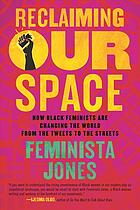
Reclaiming Our Space
How Black Feminists Are Changing the World from the Tweets to the Streets
کتاب های مرتبط
- اطلاعات
- نقد و بررسی
- دیدگاه کاربران
نقد و بررسی

Part memoir, part manifesto, this work by social worker and activist Jones begins with the premise that social change needs to start with black people because, as the author explains, "without focused work to eradicate the insidious permeation of these oppressions, we will only get as far as our internalized hatred permits." By providing insights into how she has used social media to ignite change, Jones details how she has engaged in movements that have radically transformed culture. There's a beautiful optimism about the power of social media throughout various chapters. Her focus is on Twitter, and rightly so, as she's actively used hashtags such as #BlackLivesMatter, #SayHerName, #YouOKSis, and #BlackGirlMagic. Jones carefully designed this book so that readers would see first the small sites and signs of privilege before moving into an understanding of the larger implications of what it means to have privilege in America. The work aims to engender discomfort, which is what many of us need right now if we are going to play a role in creating systemic change. VERDICT Recommended for university-level courses on gender studies and new media studies as well as for general readers interested in the intersections of pop culture, feminist theory, racial justice, and activism.--Emily Bowles, Univ. of Wisconsin, Madison
Copyright 1 Library Journal, LLC Used with permission.
January 1, 2019
A feminist writer/community activist offers insights into what she sees as the defining practices of 21st-century black feminism.For Philadelphia-based social worker and activist Jones, black feminism is "the key to Black liberation." One tool that the author believes that black feminists have used successfully in their ongoing struggle for social justice is Twitter. She argues that hashtags, which help Twitter users find "specific topics and associated social media posts," have become vital mechanisms to grow communities that extend far beyond the narrow confines of academia. Some, like #FridayNightHorror (which focuses on black women in the horror film genre) and #BlackGirlsAreMagic (which focuses on the accomplishments of black women), are social, educational, and/or inspirational in nature. Others, like #BlackLivesMatter, have become the foundation for worldwide political movements. Jones believes that Twitter has become such a successful tool for black feminists/activists because the "forum [is] rooted in the African call-and-response tradition," wherein participants aid in the development of a message while also influencing its direction. She also suggests that Twitter has become a way that black feminists like herself have been able to build followings that have allowed them to continue much-needed conversations elsewhere. Tweets on sex-positive feminism, for example, led Jones to create a widely read blog and, later, articles for Ebony.com. While the author concedes that what exists online "can be negative and harmful to [black] progress," she also suggests that continued sharing of ideas among black feminists "will strengthen and improve the way the next generation interacts with each other." Sharp and provocative, the narrative is most powerful in its implication that, unless born to privilege, all Americans, regardless of race or gender, now "feel something akin to what Black people...have always experienced." Understanding black (female) struggles is therefore critical for everyone.Smart, savvy, and unapologetically fierce.
COPYRIGHT(2019) Kirkus Reviews, ALL RIGHTS RESERVED.

























دیدگاه کاربران